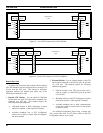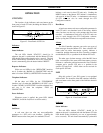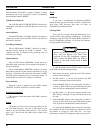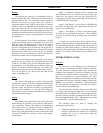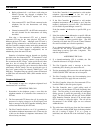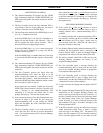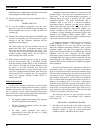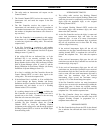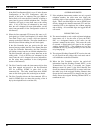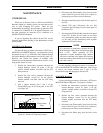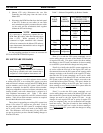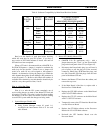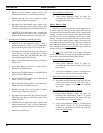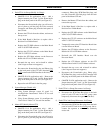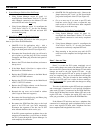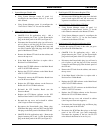
LBI-39076B OPERATION
42
If the Dial Tone Required field is set to Y in the System
Configuration of the GTI Configurator, then the
absence of dial tone, for whatever line type (E&M or
End-to-End), will cause the Site Controller to initiate a
rotary hunt to get an available telephone line. The Site
Controller will apply a rotary hunt tone to the calling
radio. If all of the lines are exhausted by the rotary
hunt, the call is dropped (for more information, see the
rotary hunt parameters in the Configuration section of
this manual).
14. When the line-connected GTI detects dial tone (or E-
lead signal) (or if Dial Tone Required is N and the Dial
Tone Seek Time is up), it sends a dial tone detected
message to the Site Controller. The caller should hear a
dial tone (but will hear nothing for an E-lead signal).
If the Site Controller does not receive the dial tone
detected message within the Dial Tone Detect Duration
in the Site Controller Personality, the Site Controller
will initiate a rotary hunt for an available telephone line.
The Site Controller will apply a rotary hunt tone to the
calling radio. If all of the lines are exhausted by the
rotary hunt, the call is dropped (for more information,
see the rotary hunt parameters in the Configuration
section of this manual).
15. The Site Controller sends the interconnect digits (that
have been trapped and stored) to the line-connected
GTI for re-dialing (DTMF or pulse dial) to the
connected line. The caller should hear these DTMF
tones or dial clicks (pulse dial) as the digits are dialed.
16. The Site Controller directs the line-connected GTI to
look for DTMF digits (to detect the pressing of the #
key by the telephone user to end the call).
OVERDIALED DIGITS
17. If the telephone interconnect number was only a partial
telephone number, the caller must now supply the
remaining digits of the telephone number as overdialed
digits. These overdialed digits are sent as DTMF tones
directly through the channel-connected GTI and line-
connected GTI to the telephone line, without trapping
and re-dialing. All overdialed digits are logged into the
call record.
ENDING THE CALL
18. The normal method to end a radio-originated telephone
interconnect call is for the caller to press the EXIT,
SPC, or a designated button on the radio (see the
operator's manual for the radio). This causes the radio
to transmit a digital end-of-call signal to the assigned
working channel GETC. (The telephone end can also
terminate the call, by pressing the # key for one second
or by hanging up.)
19. The assigned Working Channel GETC receives the end-
of-call signal from the calling radio, and sends end-of-
call information to the Site Controller.
20. When the Site Controller receives the end-of-call
information from the Working Channel GETC, or the
Transmission Conv Limit is exceeded (see System
Manager screen 10, panel 2.), the Site Controller first
directs the channel-connected GTI to extract itself from
the audio loop of the assigned Working Channel, then
directs the line-connected GTI to hang-up the line, and
finally directs the assigned Working Channel GETC to
terminate the call.



